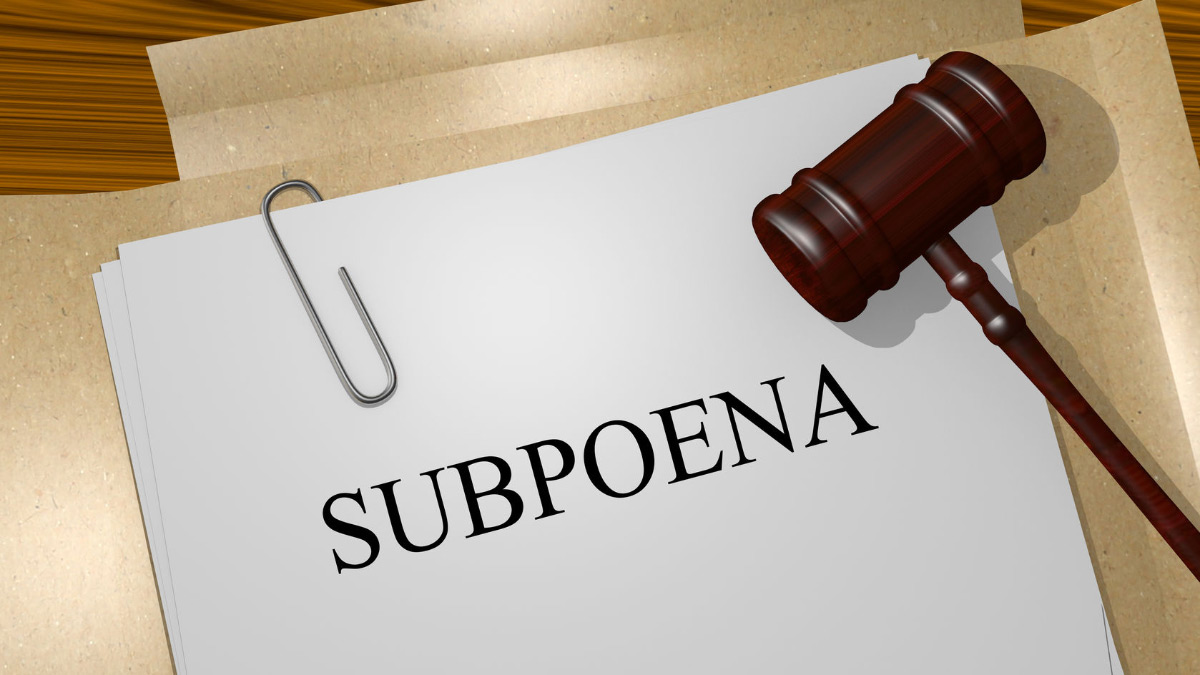Efforts are underway to hold Attorney General William Barr in contempt of Congress, which in theory could result in a fine or jail time for Barr.
House Speaker Nancy Pelosi warns of a “constitutional crisis.”
Unfortunately, if there is such a crisis—and there isn’t—it would be the result of Congress’ abuse of its subpoena authority, which it would be wise to rein in.
Congressional investigations, subpoenas and threats to hold political rivals in contempt have become far too common in Washington. Although the Democrats are the ring masters of the current circus, Republicans have engaged in similar conduct in the past.
A subpoena is a court-ordered command to either testify or produce documents or tangible objects. No specific constitutional provision authorizes Congress to issue subpoenas.
Congress claims the power is inherent in its legislative authority, needed at times to help determine whether an issue or concern requires legislation.
Congress’s subpoena and contempt powers often are traced back to the British Parliament. It is argued that the British context provides an example and surely the Framers of our Constitution wanted Congress to be able to use compulsion in its investigatory efforts.
This analogy is misguided in as much as under the British form of government Parliament was considered sovereign, possessing supreme power.
According to the eminent eighteenth century jurist William Blackstone, author of the “Commentaries on the Laws of England,” Parliament “hath sovereign and uncontrollable authority in making, confirming, enlarging, restraining, abrogating, repealing, reviving and expounding of laws.”
So powerful was the Parliament that “it can change and create afresh even the Constitution of the kingdom...”
America’s Founders rejected the idea that a single branch or institution of government could possess ultimate sovereignty.
Instead, popular sovereignty held sway, where the people are supreme and delegate certain powers through written constitutions to their federal and state governments.
The U.S. Constitution grants the House of Representatives the express power to punish or expel its own members.
Under the legal principle of interpretation known as expressio unius est exclusio alterius, when one or more things of a class is expressly mentioned others of the same class are excluded.
By specifically recognizing the power of Congress to punish its own members, an argument can be made that the Constitution should be interpreted to exclude the power of Congress to punish others with contempt citations.
Indeed, early American history has but a few examples where Congress used compulsory process to obtain facts relevant to its legislative and administrative functions.
Modern practice, however, features a flurry of subpoenas and threats of contempt proceedings. The courts have repeatedly recognized an inherent congressional power to issue subpoenas and to punish individuals refusing to comply.
The Supreme Court, in the 1957 case Watkins v. United States, stated in sweeping fashion that “it is unquestionably the duty of all citizens to cooperate with Congress in its efforts to obtain the facts needed for intelligent legislative action.”
The high court also has recognized that the protections of the Bill of Rights such as right to counsel and right against self-incrimination apply to congressional investigations.
The real constitutional crisis has nothing to do with the subpoena for the unredacted Mueller report, but instead is the familiar theme of Congress acting outside its enumerated powers so it resembles the omnipotent legislature Blackstone described.
“Implied/inherent” powers have chipped away at the restraints of the Constitution for years and the current spectacle in Washington is just the latest example.
Congress should eschew such political sideshows and work within its enumerated powers to deal with real crises, such as our $22 trillion national debt, border security and the ramifications of our failed nation-building exploits in the Middle East.












